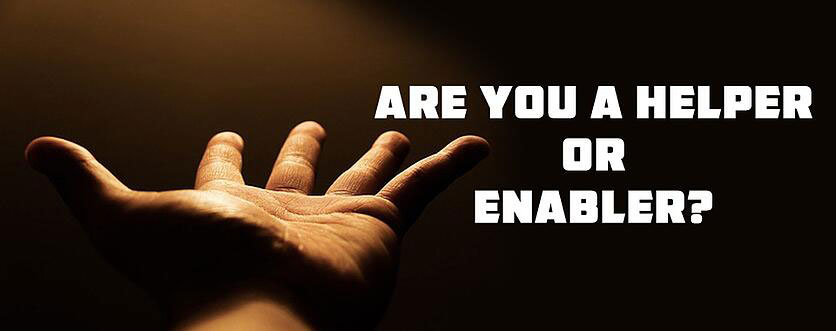Have you ever watched the long running, A&E reality show ‘Intervention’?
It’s always been one of my favorite TV shows because of its approach to the reality of the drug and alcohol epidemic in this country, and the hope that is spawned as the ‘addicted one’ enters treatment at the end of the show. Not all segments, however, end the same, but there is one component of each show that has stayed consistent throughout its 17 year run – and that is of the ‘Enabler’…that devious, do-gooder who thinks he or she is saving their loved one’s life only to actually be contributing to their problem.
Each show’s central cast of characters consists of the addict, family members, friends and that one well-meaning enabler. The enabler takes on many forms. They could be the spouse, a parent, a sibling, a child or even a friend. Each time the enabler engages the addict it’s always out of a sense of duty to help, but it usually results in the addict continuing to use and even ‘stepping on the accelerator’ in some cases.
The enabler has only good intentions, after all, they are ‘helping’ out of love. How could this possibly go wrong? Well if you watch the show, you know the answer to that. It rarely ever goes right! The enabler usually forgets to take into account the one overriding fact about addiction…and that is, rarely will an addict get better without the proper motivation. That motivation can take on many forms, but it usually boils down to leverage…what leverage has been placed on them to begin to address their addiction and to start getting better. Will the consequences of not addressing the issue be great enough for them to start. Have they lost a job? Do they have legal issues? Are they facing divorce? Are family members setting boundaries?
In a large number of cases, the addict must face one or more of these decision points before they’ll even consider getting help…and even then the choices they face may force them to relapse multiple times because the consequences haven’t been severe enough to finally make them get serious about their addiction. A good enabler transfers this responsibility to themselves taking the addict out of the equation.
According to Dr. Karen Khaleghi in ‘The Anatomy of Addiction’ here are some things to consider if you think you may be an enabler:
- Do you often ignore unacceptable behavior?
- Do you find yourself resenting the responsibilities you take on?
- Do you consistently put your own needs and desires aside in order to help someone else?
- Do you have trouble expressing your own emotions? * Do you ever feel fearful that not doing something will cause a blowup, make the person leave you or even result in violence?
- Do you ever lie to cover for someone else’s mistakes?
- Do you consistently assign blame for problems to other people rather than the one who is really responsible?
- Do you continue to offer help when it is never appreciated or acknowledged? https://www.psychologytoday.com/blog/the-anatomy-addiction/201207/are-you-empowering-or-enabling
So if you have an addict in your life and they’re not looking for help, ask yourself: ‘Are you the enabler?’









